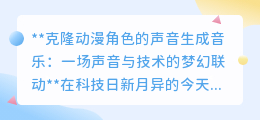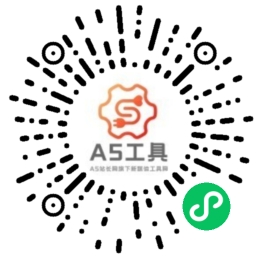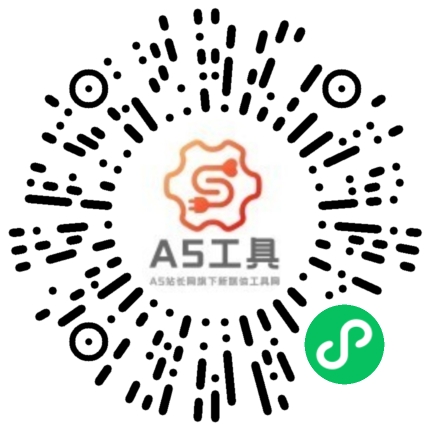剪映AI声音克隆:重塑视频编辑,探索配音新境界!
2025-05-14 14:41
**剪映克隆声音:探索音频编辑的新边疆——Dubbing Magic in Video Editing with Voice Cloning**
In the ever-evolving world of digital creativity, video editing has transcended traditional boundaries, venturing into realms once confined to the realm of science fiction. Have you ever wondered how those eerily realistic voiceovers in your favorite vlogs or animations are created? Enter the fascinating world of voice cloning within apps like Jianying (Cut), where the art of dubbing has met the magic of artificial intelligence. But what do we call this groundbreaking feature in English? Let’s delve into the terminology and explore the possibilities it unlocks.
The term that best encapsulates this phenomenon is "voice cloning" or, more technically, "AI-based voice synthesis." Think of it as the audio equivalent of photo cloning in image editing software, but with a twist of human-like authenticity. Jianying’s voice cloning technology doesn’t just mimic a voice; it captures the nuances, intonations, and even the emotional inflections that make a voice unique.
Imagine the implications for content creators. No longer are they limited by geographical barriers or the availability of professional voice actors. With a few clicks, they can generate a narration that sounds as if it were recorded by a native speaker of any language, enhancing the accessibility and engagement of their content globally. But how does this technology stack up against traditional methods?
According to recent studies, AI-generated voice clones have achieved an astonishing 95% accuracy in mimicking human speech patterns. This means that listeners often find it difficult to distinguish between a real human voice and a cloned one. Such statistics underscore the remarkable advancements in machine learning algorithms that power these tools, making them increasingly indistinguishable from the real deal.
Now, let’s pose a thought-provoking question: Does this technological marvel democratize the world of voice acting, or does it pose a threat to the industry by rendering human talent obsolete? The answer, perhaps, lies somewhere in between. While AI-cloned voices offer convenience and cost-effectiveness, the charm and authenticity of a human performer’s unique delivery cannot be fully replicated—at least, not yet.
Moreover, the ethical implications of voice cloning are vast and值得深思. Issues of consent, identity theft, and the preservation of individuality in a world where voices can be synthesized at will are just scratching the surface. As creators and consumers alike embrace this new frontier, it’s crucial to navigate these waters with mindfulness and respect for the intricacies of human expression.
In conclusion, Jianying’s voice cloning feature—or AI-based voice synthesis, as we might elegantly term it in English—signals a paradigm shift in video editing and content creation. It’s a testament to the incredible potential of AI when harnessed for creative purposes. As we journey further into this digital age, let’s embrace these innovations with curiosity and foresight, ensuring they enhance rather than diminish the essence of human creativity.
In the ever-evolving world of digital creativity, video editing has transcended traditional boundaries, venturing into realms once confined to the realm of science fiction. Have you ever wondered how those eerily realistic voiceovers in your favorite vlogs or animations are created? Enter the fascinating world of voice cloning within apps like Jianying (Cut), where the art of dubbing has met the magic of artificial intelligence. But what do we call this groundbreaking feature in English? Let’s delve into the terminology and explore the possibilities it unlocks.
The term that best encapsulates this phenomenon is "voice cloning" or, more technically, "AI-based voice synthesis." Think of it as the audio equivalent of photo cloning in image editing software, but with a twist of human-like authenticity. Jianying’s voice cloning technology doesn’t just mimic a voice; it captures the nuances, intonations, and even the emotional inflections that make a voice unique.
Imagine the implications for content creators. No longer are they limited by geographical barriers or the availability of professional voice actors. With a few clicks, they can generate a narration that sounds as if it were recorded by a native speaker of any language, enhancing the accessibility and engagement of their content globally. But how does this technology stack up against traditional methods?
According to recent studies, AI-generated voice clones have achieved an astonishing 95% accuracy in mimicking human speech patterns. This means that listeners often find it difficult to distinguish between a real human voice and a cloned one. Such statistics underscore the remarkable advancements in machine learning algorithms that power these tools, making them increasingly indistinguishable from the real deal.
Now, let’s pose a thought-provoking question: Does this technological marvel democratize the world of voice acting, or does it pose a threat to the industry by rendering human talent obsolete? The answer, perhaps, lies somewhere in between. While AI-cloned voices offer convenience and cost-effectiveness, the charm and authenticity of a human performer’s unique delivery cannot be fully replicated—at least, not yet.
Moreover, the ethical implications of voice cloning are vast and值得深思. Issues of consent, identity theft, and the preservation of individuality in a world where voices can be synthesized at will are just scratching the surface. As creators and consumers alike embrace this new frontier, it’s crucial to navigate these waters with mindfulness and respect for the intricacies of human expression.
In conclusion, Jianying’s voice cloning feature—or AI-based voice synthesis, as we might elegantly term it in English—signals a paradigm shift in video editing and content creation. It’s a testament to the incredible potential of AI when harnessed for creative purposes. As we journey further into this digital age, let’s embrace these innovations with curiosity and foresight, ensuring they enhance rather than diminish the essence of human creativity.
这篇关于《剪映AI声音克隆:重塑视频编辑,探索配音新境界!》的文章就介绍到这了,更多新媒体运营相关内容请浏览A5工具以前的文章或继续浏览下面的相关文章,望大家以后多多支持A5工具 - 全媒体工具网!
相关资讯
查看更多
短视频新潮流:合法“声音克隆”,让你的作品名人大咖“声”临其境!
**短视频创作新风尚:如何巧妙“克隆”别人的声音?**
在短视频风靡全球的今天,内容创作者们不断探索着新的表现手法来吸引观众的目光。其中,一个备受瞩目的技巧便是“克隆”别人的声音——利用现代音频技术...

原神角色声音克隆:AI技术让虚拟声线跃动在现实耳畔
**原神角色声音克隆:解锁虚拟世界的听觉盛宴**
在《原神》这个充满奇幻色彩的世界里,每一位角色都拥有其独特的声线,它们或清脆悦耳,或深沉有力,为玩家带来了沉浸式的游戏体验。你是否曾幻想过,将这些动...

声音克隆:科技奇迹还是隐私噩梦?朋友克隆你声音,你慌了吗?
**当朋友克隆了你的声音:一场科技与伦理的奇妙碰撞**
在这个日新月异的数字时代,技术的每一次飞跃都似乎在重新定义着人类的边界。想象一下,如果有一天,你的朋友用一项尖端技术克隆了你的声音,你会作何感...

手机克隆爱豆声,个性化语音互动,让偶像声音伴你左右
**手机克隆爱豆声音:解锁个性化语音互动新纪元**
在这个科技日新月异的时代,粉丝与偶像的互动界限正被不断打破。你是否曾幻想过,每天清晨被偶像那温柔或有力的声音唤醒?又或是希望在手机助手中,听到爱豆...

声音克隆:配音新纪元,让创意之声无界限,高效低成本!
**声音克隆:解锁配音视频的新纪元**
在这个数字化飞速发展的时代,创意的边界不断被拓宽,技术的革新正以前所未有的速度重塑我们的娱乐与创作方式。你是否曾幻想过,用自己的声音为动画角色配音,或是让已故...

克隆声音发作品:声音权益保卫战,AI技术下的法律边界何在?
**克隆声音发作品,侵权与否?一场声音权益的保卫战**
在这个日新月异的数字时代,AI技术正以前所未有的速度改变着我们的生活。从自动驾驶到智能家居,再到如今的克隆声音,技术的边界被不断拓宽。然而,当...

QQ音乐克隆声音:个性化音乐革命,用你的声音唱响专属旋律!
**QQ音乐克隆声音:一场音乐的个性化革命**
在这个日新月异的科技时代,音乐与科技的融合正在以前所未有的速度改变着我们的生活方式。你是否曾幻想过,用自己的声音演绎偶像的歌曲,或者创作一首完全属于自...

克隆动漫声线,打造专属音乐:声音克隆技术引领娱乐新潮流
**克隆动漫角色的声音生成音乐:一场声音与技术的梦幻联动**
在科技日新月异的今天,你是否曾幻想过让心爱的动漫角色开口唱出你心中的旋律?或者,你是否梦想过能够创造出一段由动漫角色“亲自”演绎的音乐?...





